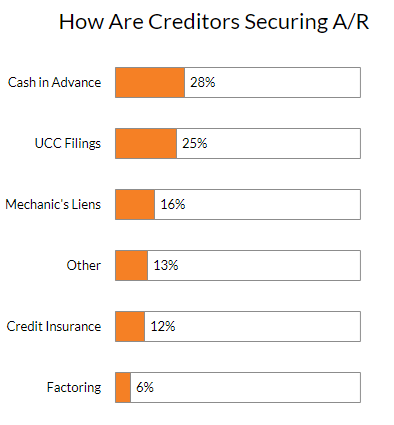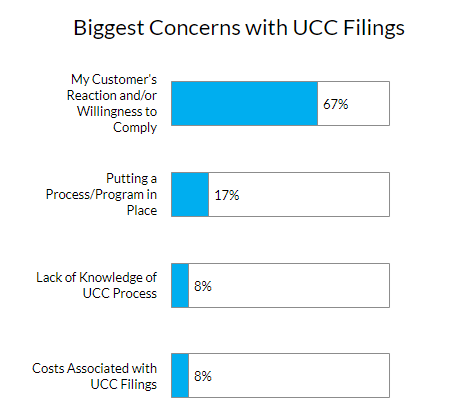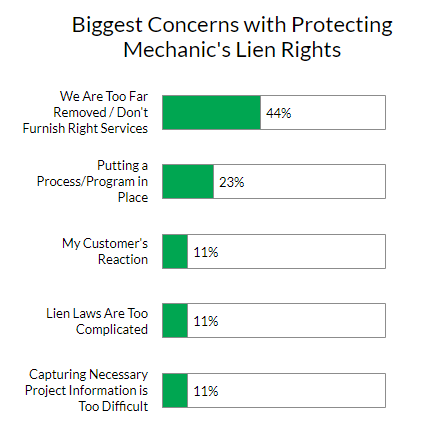
What Happens to Your Claim if Your Bankruptcy Proof of Claim is Late?
Bankruptcy proofs of claim are your key to ensuring the Trustee is aware of funds owed to you by the bankrupt party. And, just like filing UCCs or mechanic’s liens, there are deadlines in play for proofs of claim. What happens to your claim if your proof of claim is filed late? A Bankruptcy Court in North Carolina recently decided one creditor was not entitled to distribution of funds, because its proof of claim reached the court one day after the bar date.
The Bankruptcy Proof of Claim
A proof of claim is a document filed within the bankruptcy court that alerts the court, debtor, Trustee, and other interested parties that a creditor wishes to register a claim against the assets of the bankruptcy estate. This document is important because it provides proof that the claim is valid and owed, and notifies the Trustee of the creditor’s claim as well as to what class the claim should be associated.
The U.S. Bankruptcy Court’s official form includes fields for various pieces of information, such as creditor name and location, the amount of the claim, the basis of the claim, whether the claim is secured, if the claim is based on a lease, and whether the claim is subject to right of setoff.
The Bar Date
The bar date is a deadline by which all creditors must file their proof of claims within the bankruptcy court. It is critical that the proof of claim is filed correctly and timely, whether it’s secured or unsecured, to ensure creditors’ rights are preserved and to maximize any possible distribution.
A Day Late Means Your Hanging Out with the General Unsecured Creditors
In the bankruptcy case of North Carolina New Schools, Inc., the bar date was set for September 13, 2016. One creditor, WorkSmart, Inc., mailed its proof of claim around September 7, 2016, and its claim was received by the court September 14, 2016. One day after the bar date. The bankruptcy Trustee filed an objection to avoid the creditor’s claim, arguing the creditor failed to file its claim timely. The creditor filed a response, claiming a “…’mailbox presumption’ creates a rebuttable presumption that the Claim was received in the ordinary course of business.”
A mailbox presumption? Yeah, I didn’t know what it was either. According to the court “The mailbox presumption is a common law evidentiary principle that permits a party to prove receipt of a document that has been mailed.” Essentially, the creditor argued that because the document was allegedly mailed timely, it should be considered received timely. And although I initially chuckled at the word “common” it is apparently a popular topic. The court went on to explain that courts are split, and there isn’t a definitive answer as to whether the mailbox presumption should apply in the mailing of a proof of claim.
Unfortunately for this creditor, the court decided there is a difference between service of a document and the filing of a document (we just talked about this in another post), and it is the creditor’s responsibility to ensure the document is filed by the deadline.
“…applying the mailbox presumption to the mailing of a proof of claim would complicate, bring uncertainty, and cause undue delay to the bankruptcy claims process. Setting a bright-line rule for the filing of claims is vital to the timely administration of a chapter 7 case. Creditors, with minimal expense or inconvenience, can ensure that a proof of claim is received by the clerk’s office before the deadline by filing their claims electronically or directly at the clerk’s office counter, using some form of priority or overnight mail, or calling the clerk’s office to verify the receipt of the claim.”
And just like that, the creditor’s claim for $169,569 was not entitled to distribution, because it was filed a day late.
The Bankruptcy Proof of Claim Lesson
Make sure your proof of claim is received by the bar date. Navigating a proof of claim? Contact us today and let our experts help you!













